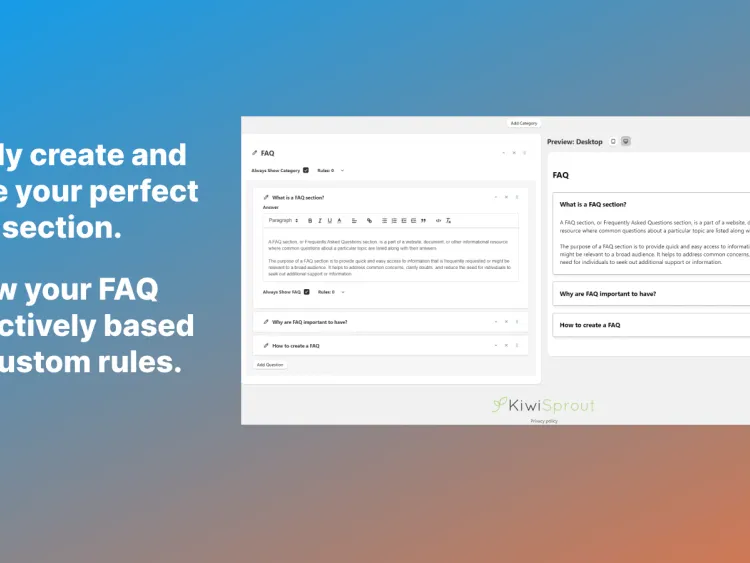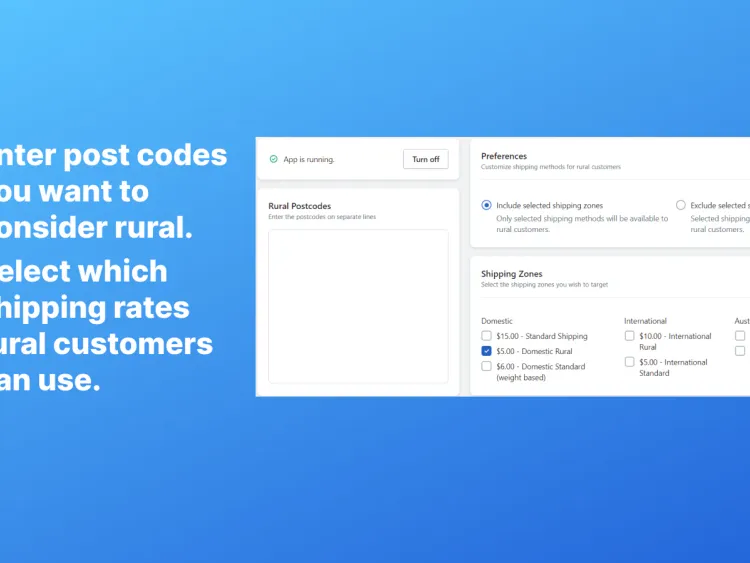
24 SEO Questions Answered
General SEO Questions
Which SEO plugin is the best for WordPress?
Without a doubt, Yoast SEO is the best SEO plugin for WordPress. Yoast SEO fills in a lot of the largest SEO gaps that the base install of WordPress is lacking including the ability to add & modify each page’s meta description & title, add a sitemap to your website & monitor the SEO health of your pages with its recommendations.
Which CMS is best for SEO?
Your Content Management System (CMS) shouldn’t really be determined by which is the best for SEO. The SEO differences from CMS to CMS are so minute and often easily adapted for full performance that they all have a relatively equal standing for SEO. Choose which CMS works best for you, regardless of their basic SEO implications; almost any shortcomings in terms of SEO for a CMS can be fixed with a little bit of effort.
Which is better, SEO or AdWords?
There’s no definite answer for what is best because they fulfill different needs and purposes. AdWords are immediate but paid results that nets high volume traffic in a short term whereas SEO is low cost, not immediate and nets traffic consistently over the long term. If you’re looking to push a new product and spend X amount to get Y back, go with AdWords; if you’re looking to grow your authority for a service over the next few years, go with SEO.
Both SEO and AdWords are powerful tools and where applicable you should be using both.
What’s the difference between SEO and SEM?
SEO only encapsulates organic traffic growth by ranking better for your focus search terms whereas SEM encapsulates all of the marketing activities of search engines. This includes channels like AdWords (PPC), Google Snippet previews & SEO.
Does SEO help for products?
Of course it does. If you have a product or range of products appearing in the top of the search results for your products or keywords related to your products brings in traffic to view & buy what you’re selling.
For stores that only sell their products physically this is still important as well, 30% of mobile searches are related to a location (Google, 2016) and SEO can help people to find your store locally.
Will SEO get me traffic?
If you’re doing SEO properly it will get you traffic. For any search term a certain amount of people will search for that term a month, and the closer you get to the top for that search term the higher the percentage of people will click on your result which leads them to your website. What search terms you appear for and where you appear in those search results will have a direct correlation on your quantity of traffic visiting your website.
For example, say “sports shoes” gets 100K visitors a month. If you always appeared #1 in the search results for that search term, you could expect roughly 42% of the monthly searchers to click on your search result, netting 42K visitors to your website in a month.
Does SEO help increase sales?
Like with products, the simple answer is yes. At a basic level there’s two factors to your sales online: traffic and conversion rate. So to increase sales you either have to improve the quantity of people that visit your website or the percentage of website visitors that buy something from you. SEO increases the amount of traffic to your website, therefore improving the quantity of your sales.
Are SEO services worth it?
It really varies from business to business but generally speaking the answer is yes. SEO provides a long term benefit in terms of traffic to your website and while SEO results aren’t permanent or guaranteed a website that ranks well for its key search terms will typically continue to perform relatively well in the future (although to stay top dog you will have to keep on adapting to the latest changes in the SEO space).
If you benefit from more people visiting your website, SEO services are worth it, but if your room for improvement or target audience is very limited, or you don’t actually benefit from people visiting your website at all, then SEO may not be worth your time or money.
Are SEO companies scams?
We’ve all gotten spam emails from SEO companies promising instant results, rank #1 for everything, thousands of visitors, etc. That sort of SEO companies are definitely scams, nothing is guaranteed and definitely not as cheap as what they’re offering.
In saying that, just because there’s scam SEO companies doesn’t make all SEO companies scammers and most SEO companies are offering a legitimate service. If you got an email from a building company offering to build your house in a week and it’s obviously a scam that wouldn’t make every building company a scam as well, right?
If you’re looking to engage a company in SEO services there’s plenty of legitimate companies out there that can produce real results, just do your homework first and don’t go with some company that sent an unsolicited email providing wild results.
Is SEO dead?
I’ve been hearing SEO is dead or dying ever since I started learning about SEO but that’s simply not true.
For starters, most articles claiming SEO to be dead are just doing it for shock factor which translates to more views.
To be clear, SEO is never going to be dead. As long as there is a reason why result A is above result B for a search term, SEO is alive and well.
SEO is all about ranking your website higher in the search results, so as long as there’s factors that affect how close you appear to the top for a search term, SEO is not dead.
Can SEO be guaranteed?
SEO can never be guaranteed. The frequency and volatility of updates to Google’s search engine algorithm means that while people can set up a website to be as best as it can be in terms of SEO, achieving any results can’t be guaranteed.
The weighted factors are always changing and as such ranks keep on shifting, any promise to achieve and always maintain first page or even worse first result is a red flag.
I recommend reading Google’s guidelines on SEO where Google themselves put the final nail in the coffin on guaranteed results with this line:
No one can guarantee a #1 ranking on Google.
What’s the easiest way to do SEO?
There’s often a direct correlation between effort and results with SEO, there’s no easy way to cover all your bases with SEO using little to none effort.
In saying that though, some SEO wins are easier than others. If you just want to do a little bit of SEO without committing a lot of time or resources into it concentrate on writing good quality content as well as creating a good heading, title and meta description that reflects what you want to rank for.
You can learn more about how to do these easy wins with our own SEO guide.
Where do I start with SEO?
The best place to start with SEO is your content; ask yourself if your headings, text, title, meta description and images reflect what you’re trying to rank for. These are often the “easy wins” for SEO, after that it’s typically best to run a full SEO audit to understand better what technical changes need to be made such as user experience, link building and keyword density.
Where can I learn about SEO?
The best place to start before you begin learning SEO is learning how to use Google Analytics through Google Academy. This will give you a good bearing on the primary tool you will use for SEO.
Next, I’d recommend checking out Moz’s SEO learning resources and going through each topic. Moz covers a lot of the core fundamentals that will serve you extremely well for doing SEO yourself.
Technical SEO Questions
Are SEO keywords case sensitive?
No, SEO keywords are not case sensitive. Search results are matches against search terms without any regard to upper or lowercase letters.
Are SEO friendly URLs important?
SEO friendly domains and URLs do give a minor bonus to your SEO but generally they do not give enough of a boost to be significant. You’re better basing your domain around your own branding for your website instead of a keyword. For page URLs, if you can get away with a page URL, such as example.com/sports-shoes/, that still accurately reflects the content of the page in a human readable format then this is a good change to make.
Are keywords important for SEO?
Keywords are still important for SEO but topics are rising in importance as well. SEO for keywords is the more classical approach of creating specific pages designs to rank well for specific search terms whereas topic focused SEO is all about building pages around one central topic with the aim to rank well for search terms associated with that central topic.
If you’re starting a new SEO campaign, focus on both keywords and topics to get the most out of your strategy.
Will AdWords help SEO?
Despite many varied claims, AdWords will note help SEO. To directly quote Google, “Running a Google AdWords campaign does not help your SEO rankings” (https://adwords.google.com/home/resources/seo-vs-ppc.html).
Will subdomains affect SEO on my other subdomains?
According to Google, Subdomains are treated as entirely separate websites for SEO and as such they’ll have their own unique levels of performance, authority and rankings.
Will HTTPS affect my SEO?
Yes, aside from HTTPS providing a minor SEO boost, in July 2018 websites that do not have https will be marked as not secure. Having your website marked as not secure will be horrible not only for your SEO but also CRO, branding and user experience; every website should conform to HTTPS.
Will getting more traffic affect my SEO?
Currently there is no evidence that traffic is a direct factor in rankings for SEO. In saying that, often a high volume of traffic will have an indirect effect on SEO through factors such as social media signals and link building which is likely to be more common with higher traffic which will in turn improve SEO.
Can SEO keywords be phrases?
I’ve always hated the term “Keywords”, this is because to me it infers that one search result will only have one keyword which is definitely not the case. Keywords can be individual words like “shoes”, a combination of words like “sports shoes” or even a whole sentence (often referred to as a “long tail keyword” like “where to find sports shoes in Hamilton”.
Where should I put my keywords for SEO?
I wouldn’t recommend being overly analytical with where your put your keywords for SEO. Generally I would suggest making sure your keyword appears in your page’s heading, title and body text but go with whatever is the most natural and
How long does it take for SEO to take effect?
The typical range is 3 to 6 months for SEO work to take effect but it varies from website to website. There’s plenty of factors involved which determines how long it will take including traffic, domain age, page age, competition, industry, location and more.


